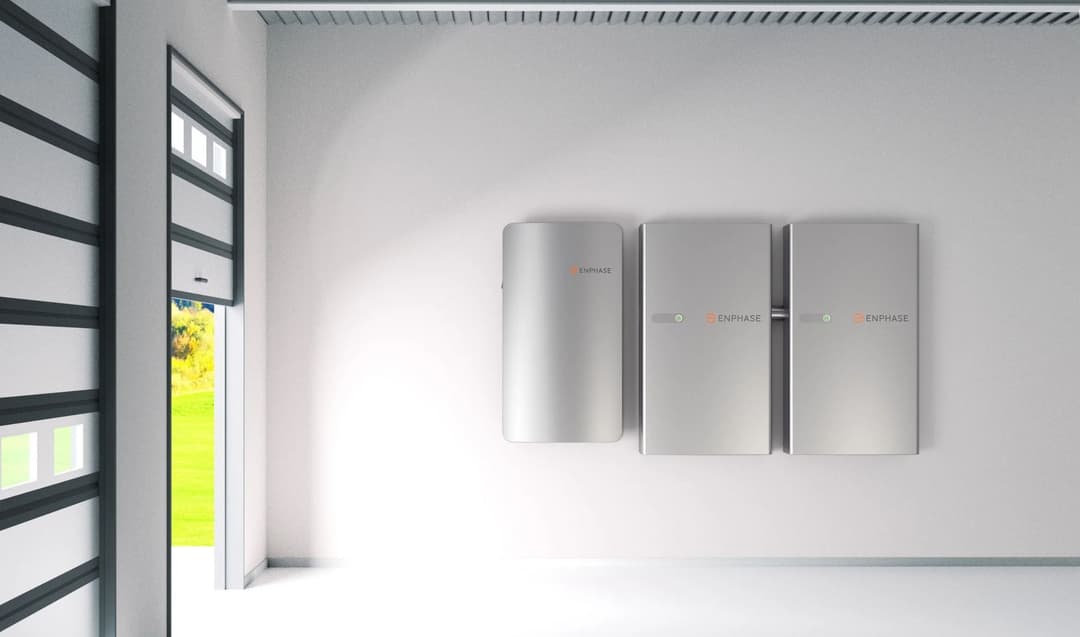Solar Brands in the U.S
Choosing the Best Solar Battery: A Review of Top US Solar Brands
The United States Solar Industry is growing at a rapid rate. According to the US Department of Energy, thousands of companies specialize in solar energy generation as well as storage and battery technologies. These range from large multinational corporations to smaller, locally-based companies.
Reduced upfront costs, ongoing savings, and potential financial incentives help create a smoother transition to solar-powered energy storage.
By taking advantage of solar incentives, homeowners can accelerate their return on investment for solar batteries.
Some well-known solar brands in the U.S. include:
- Tesla Powerwall
- SunPower SunVault
- Enphase IQ
- LG Chem Resu
- Generac PWRcell
Top Solar Batteries: Comparing Generac, Tesla, LG, Enphase and Other Popular Brands
Tesla Powerwall 2
The Tesla Powerwall 2 is a lithium-ion solar battery that’s mostly used with Tesla solar panels. However, you can charge the battery with any electricity source to use as a backup during a power outage.
As of 2023, a single Powerwall costs around $12,000 to $14,500. However, after deducting the 30% federal solar tax credit, the price of the unit drops to $8,400 to $11,500.

Installing the Tesla Powerwall provides you with high storage capacity and power output in exchange for your money.
The energy capacity of the Tesla Powerwall is 13.5kWh and it has a power output of 5.6kW. The Tesla Powerwall also comes with a 10-year warranty. The efficiency of the battery is 97.5%, and it has a depth of discharge of 100%. The battery also has an integrated inverter and rectifier.
Pros of the Powerwall
- The Powerwall has a great battery usable capacity of 13.5kWh
- It has a built-in inverter/converter, making it easy to be retrofitted to any house with an existing solar panel installation.
- It is easy to commission and install.
Cons of the Powerwall
- The Powerwall is not modular. This means that there is only one size available and the only way to get a larger capacity is to purchase multiple Powerwalls.
SunPower SunVault
Known for their high-efficiency solar panels, SunPower expanded it's list of products to include solar batteries in 2019.
SunPower offers two battery options. The first is the SunVault Storage 13 with a 12 kWh capacity. The second is the SunVault Storage 26 with 24 kWh. The batteries have a round-trip efficiency of 85% and a 10-year warranty.
The batteries also have a 70% end-of-warranty capacity.
Pros of the SunVault
- The SunVault has one of the largest usable capacities in the US market
- It provides two battery options and this allows for more customization.
- The battery uses the latest LFP technology and this allows for longer battery life and improved safety.
Cons of the SunVault
- SunVault only works with SunPower solar panel systems.
- The depth of discharge information for SunVault batteries is undisclosed.
Enphase IQ
Enphase batteries cost between $3,000 and $8,000 on average, depending on which of its four models you're purchasing. Its four models include the following:
- Enphase 1Q 3: This model is wide and heavy and it has a capacity of 3.36kWh.
- Enphase 1Q 3T: This model has the same capacity as the previous one but comes in a sleeker and more compact design.
- Enphase 1Q 10: This model is heavy and it has a capacity of 10.08kWh.
- Enphase 1Q 10T: This model is a slightly slimmer and lighter version of the Enphase 1Q 10 model. *
Each of the Enphase models has a round trip efficiency of 96% and a 100% DoD. They are also LFP batteries which are safer for use and have a longer lifespan.

The battery has a 10-year warranty and 4,000 cycle clause. All four battery models also have a guaranteed end-of-warranty capacity of 70%. The batteries are made to work with Enphase inverters only.
Pros of Enphase Batteries
- All battery models have an Enpower smart switch which enables them to work with either gas-powered or solar generators.
- The battery can automatically detect a grid outage and switch into an off-grid mode. Many other batteries require a manual switch.
- It has an optional five-year warranty extension.
Cons of Enphase Batteries
- Has a lower battery capacity and power rating than other batteries in its price range.
- Designed only to work with Enphase inverters.
LG Chem Resu 10H
LG solar batteries for homes have a usable energy capacity of 9.8kWh and a DoD of 95%. Additionally, LG Chem Resu 10H batteries have a warranty of 10 years with 4,000 cycles. It also has one of the highest round-trip capacities for a battery that uses NCM technology at 94.5%.
Pros of the LG Chem Resu 10H
- It has a 9.8kWh with 90% reusable capacity.
- The battery cells are specially layered in a manner that improves their reliability and helps prevent failure in the long term.
Cons of the LG Chem Resu 10H
- It has a 60% end-of-warranty period capacity which is relatively lower than the 70% of its counterparts.
While the intitial cost of solar batteries may be high, they save money in the long run. Solar batteries are worth getting, especially in areas where there is a high cost of electricity, or where net metering is not available. They also help in areas where the weather condition is bad. Generally, batteries help you cut the cost of electricity retailers and store energy for near-future purposes.
Generac PWRcell
The Generac PWRcell is a stand-alone energy storage and management system. It is designed for residential use and may function with or without the addition of solar panels.
Most users prefer the model since it serves as an energy backup in the case of power outages and other issues. Most importantly, it monitors the energy load and minimizes waste.
When paired with a solar panel, the Generac PWRcell can be used to power homes and businesses, similar to the Tesla Powerwall, Enphase IQ, or LG Chem Resu.